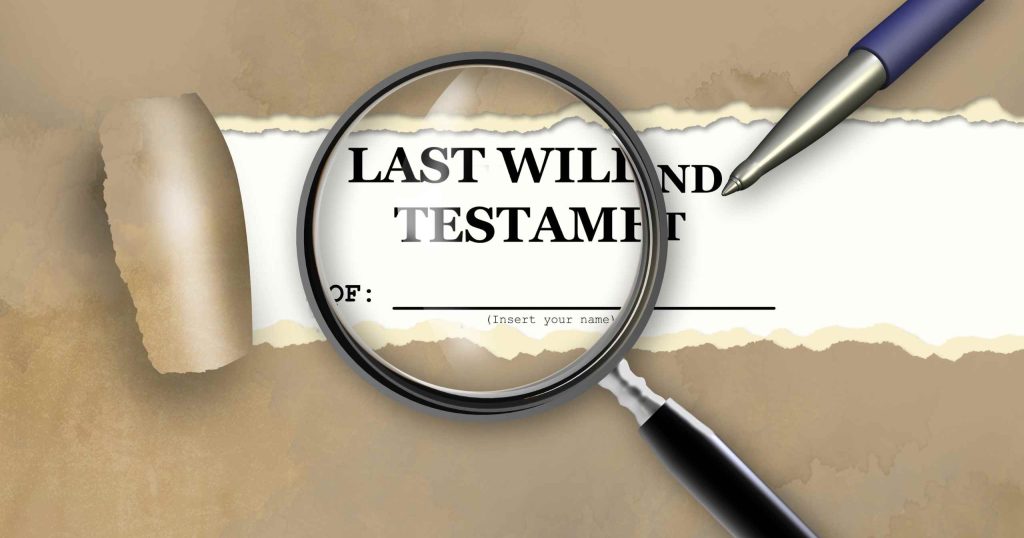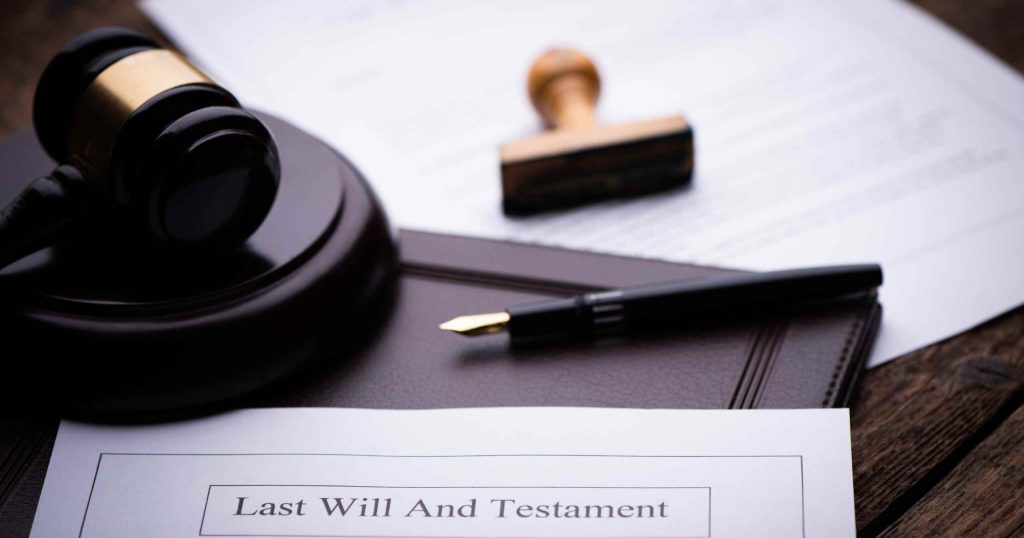As one of the most important legal documents you can create, a last will and testament outlines how your assets and personal property should be distributed after your passing. While it’s never pleasant to consider, drafting a will is an essential aspect of estate planning that ensures your loved ones are taken care of and your assets are distributed according to your wishes. In South Africa, there are specific laws and regulations governing the creation and execution of a last will and testament. In this comprehensive guide, we’ll explore everything you need to know to create a South African last will and testament that’s legally binding and enforceable.
Table of Contents
Understanding the Importance of a Last Will and Testament in South Africa

A last will and testament is a way for an individual to ensure that their assets and personal property are distributed according to their wishes after their death. Without a will, the distribution of assets and property is left up to the Intestate Succession Act of 1987, which may not necessarily align with an individual’s wishes. A will can also provide instructions on who should be appointed as guardians for minor children or who should take care of pets.
In South Africa, a will is an essential component of estate planning, as it can help minimize legal disputes and ensure a smooth distribution of assets. By creating a will, an individual can also avoid delays in the administration of their estate and minimize the costs associated with probate.
Additionally, a will can provide peace of mind to family members and loved ones. Knowing that their loved one’s wishes have been documented and will be carried out can help alleviate some of the stress and uncertainty associated with the passing of a loved one.
Why is a Last Will and Testament Important?

One of the main reasons why a last will and testament is important is that it allows an individual to control the distribution of their assets and personal property after their death. Without a will, the distribution of assets is left up to the Intestate Succession Act of 1987, which may not necessarily align with an individual’s wishes. By creating a will, an individual can ensure that their assets are distributed according to their wishes and not according to legal default.
Another reason why a will is important is that it can help minimize legal disputes among family members and loved ones. In the absence of a will, family members may dispute the distribution of assets, leading to lengthy legal battles and costly court fees. By creating a will, an individual can provide clear instructions on how their assets should be distributed, reducing the risk of legal disputes and ensuring a smooth transfer of assets.
A will is also important for individuals with minor children, as it allows them to name a guardian for their children in the event of their passing. Without a will, the courts may appoint a guardian for the children, which may not necessarily be in the best interest of the children.
Essential Elements of a South African Last Will and Testament

When creating a last will and testament in South Africa, there are several essential elements that should be included to ensure that an individual’s wishes are carried out after their passing. Here are the key elements that should be included in a South African last will and testament:
Testator Information: The first element of a last will and testament is the testator’s information, including their full name, identification number, and contact details. This information is important for identifying the individual who created the will and verifying its authenticity.
Executor Information: The next element is the executor’s information, which includes the full name, identification number, and contact details of the person appointed to manage the estate after the testator’s death. This person is responsible for ensuring that the testator’s wishes are carried out and that the estate is distributed according to the terms of the will.
Beneficiary Information: The third element is the beneficiary information, which includes the names and contact details of the individuals or organizations that will receive the testator’s assets after their death. This can include family members, friends, charities, or other entities.
Asset Information: The fourth element is the asset information, which includes a comprehensive list of the testator’s assets, including bank accounts, investments, real estate, personal property, and any other assets of value. This information is critical for ensuring that all assets are accounted for and distributed according to the terms of the will.
Specific Bequests: The fifth element is specific bequests, which are instructions for distributing certain assets to specific individuals or organizations. For example, the testator may want to leave a piece of jewelry to a family member or donate money to a charity.
Residual Estate: The sixth element is the residual estate, which is the portion of the estate that is left over after all specific bequests have been distributed. This portion of the estate is distributed to the remaining beneficiaries according to the terms of the will.
Trusts: The seventh element is trusts, which are legal arrangements that can be established to hold and manage assets on behalf of beneficiaries. Trusts can be useful for protecting assets, reducing taxes, and ensuring that assets are distributed according to the testator’s wishes.
Guardianship: The final element is guardianship, which is a provision for appointing a guardian for minor children in the event of the testator’s death. This is an important consideration for parents with young children who want to ensure that their children are cared for according to their wishes.
Creating a Legally Binding South African Last Will and Testament

Creating a legally binding South African last will and testament is an important step in ensuring that your wishes are carried out after your passing. Here are 7 steps to follow to create a valid will:
1. Choose an Executor
Choosing an executor is a critical step in creating a legally binding South African last will and testament. The executor is responsible for managing your estate after your death and ensuring that your wishes are carried out according to the terms of the will. When choosing an executor, it is important to select someone who is trustworthy, capable, and reliable. It is also a good idea to discuss your wishes and expectations with them to ensure they are comfortable with their responsibilities.
2. Appoint a Guardian
If you have minor children, it is important to appoint a guardian in your will to ensure that they are cared for according to your wishes. When selecting a guardian, consider their relationship with your children, their ability to provide a stable home environment, and their values and beliefs. It is also a good idea to discuss your expectations with them beforehand.
3. Draft the Will
The will itself must be drafted in a legally binding manner to ensure that it is valid and enforceable. It is important to work with a qualified attorney to ensure that all legal requirements are met and that your wishes are clearly stated. Your attorney can also provide guidance on how to structure the will and how to address potential complications.
4. Sign the Will
Once the will has been drafted, it must be signed in the presence of two witnesses who are not beneficiaries of the will. This is a legal requirement to ensure that the will is valid. It is important to take this step seriously, as failure to properly sign the will can lead to legal challenges and disputes.
5. Witness the Will
The witnesses must also sign the will in the presence of each other and the testator (the person creating the will). This ensures that the will is legally binding and can be enforced in court. It is important to select witnesses who are reliable, trustworthy, and who have no conflict of interest with the beneficiaries of the will.
6. Store the Will
Storing the original will in a safe place is critical to ensuring that it can be located and used when needed. It is recommended to store the will in a fireproof safe or a safety deposit box. It is also a good idea to inform your executor and trusted family members of the location of the will to ensure that it can be located quickly.
7. Review and Update the Will
Periodically reviewing and updating your will is important to ensure that it reflects your current wishes and circumstances. This is particularly important if there are major changes in your life, such as the birth of a child or a change in your marital status. By reviewing and updating your will, you can ensure that your wishes are accurately reflected and that there are no surprises for your loved ones after your passing.
Frequently Asked Questions about South African Last Will and Testament
Do I need a lawyer to create a South African last will and testament?
The time it takes to create a South African last will and testament depends on various factors such as the complexity of the estate, the number of beneficiaries, and the executor. It can take anywhere from a few hours to several weeks or even months to draft and finalize a legally binding will.
Do I need a lawyer to create a South African last will and testament?
No, you do not necessarily need a lawyer to create a South African last will and testament. However, it is highly recommended that you seek legal advice and assistance to ensure that your will is valid, legally binding, and in compliance with South African laws and regulations.
What happens if I die without a South African last will and testament?
If someone dies without a will in South Africa, their assets will be distributed according to intestacy laws, which may not align with their wishes. The estate will be divided amongst the deceased’s spouse, children, and other close family members in a predetermined order set out in the Intestate Succession Act of 1987. It is important to note that unmarried partners, friends, and charities will not inherit anything in the absence of a will.
Who can be an executor of a South African last will and testament?
Any person or institution can be appointed as the executor of a South African last will and testament, as long as they are over the age of 18 and not declared mentally unfit by a court of law. Executors can be family members, friends, attorneys, or professional institutions such as banks.
Can I disinherit someone in my South African last will and testament?
Yes, you can disinherit someone in your South African last will and testament. However, you need to clearly state your intentions in the will and provide a valid reason for the disinheritance, as disinheriting someone without a valid reason may be challenged in court.
What happens if my South African last will and testament is contested?
If your South African last will and testament is contested, it means that one or more of your beneficiaries are disputing the validity or interpretation of your will. In such cases, the matter may be resolved through mediation, negotiation, or court proceedings.
Can I leave assets to a minor in my South African last will and testament?
Yes, you can leave assets to a minor in your South African last will and testament. However, it is recommended that you appoint a legal guardian or trustee to manage the assets until the minor reaches the age of majority.
Can I include funeral wishes in my South African last will and testament?
Yes, you can include funeral wishes in your South African last will and testament. You can specify your preferred burial or cremation arrangements, funeral service details, and any other relevant instructions.
Can a South African last will and testament be challenged after my death?
Yes, a South African last will and testament can be challenged after your death if there are grounds to do so. The most common reasons for challenging a will include fraud, undue influence, and lack of testamentary capacity.
What happens to a will if the executor dies before the testator?
If the executor named in a will dies before the testator, the testator should update the will to appoint a new executor. If there is no alternate executor named in the will, the Master of the High Court will appoint an executor to administer the estate.
Can a will be stored electronically in South Africa?
Yes, a will can be stored electronically in South Africa, but it is important to ensure that the electronic copy is secure and can be accessed by the executor after the testator’s death. It is also important to keep a printed copy of the will in a safe place.
Can a foreign national make a will in South Africa?
Yes, a foreign national can make a will in South Africa if they have assets in the country. However, it is important to ensure that the will complies with South African law
Who can witness a South African will?
In South Africa, a will must be signed by the testator in the presence of two witnesses who are both over the age of 14 and who are not beneficiaries or the spouse of a beneficiary. Witnesses should also not be a person who is unable to attest to the authenticity of the will or who may have a conflict of interest.
Can a person disinherit their spouse or children in a South African will?
In South Africa, a person can disinherit their spouse or children, but this may be subject to legal challenge. Spouses are entitled to a share of the deceased’s estate, even if they are not specifically mentioned in the will, while children may be able to challenge the will if they believe they have not been adequately provided for.
Can a will be challenged in South Africa?
Yes, a will can be challenged in South Africa if someone believes that the will was not executed in accordance with the law or that the testator did not have the necessary capacity to make a will. However, contesting a will can be a complex and lengthy process, and it is important to seek legal advice before pursuing any legal action.
Can a person appoint more than one executor in their Last Will and Testament?
Yes, a person can appoint more than one executor in their Last Will and Testament. They can also appoint a substitute executor in case the primary executor is unable to act.
Conclusion
In conclusion, creating a legally binding South African last will and testament requires careful consideration and attention to detail. By following these steps and working with a qualified attorney, you can ensure that your wishes are carried out after your passing and provide peace of mind to your loved ones. Contact us today to schedule a consultation and begin planning for the future. We’re here to provide you with the guidance and support you need to create a legally binding South African last will and testament that protects your assets and provides for your loved ones.








